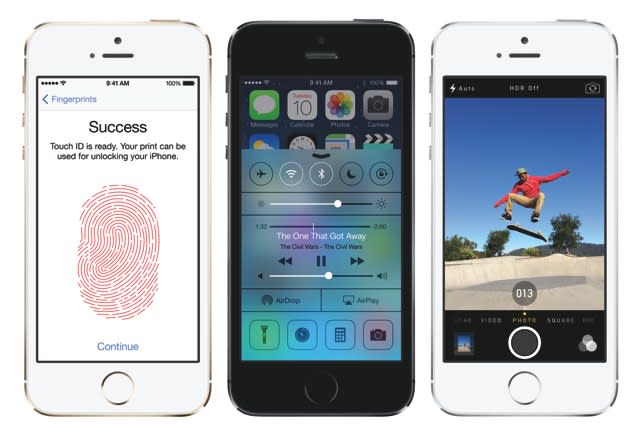Samsung's smartphone woes mean little to Apple, and that's by design

Earlier this week, Samsung announced that it would miss Q2 expectations and take a 24% tumble in profit from the same period a year ago. That's bad news for one particular electronics giant, but some shortsighted tech soothsayers decided to shift the narrative a bit and include the iPhone in the mix. Here's the problem with that argument: Apple has set up its smartphone business in a way that makes it resistant -- if not completely immune -- to the pitfalls plaguing Samsung.
Apple spent much of last year getting pummeled by analysts who were begging for the company to do something, anything, to appeal to the budget smartphone crowd and developing markets. When the 5c was announced -- which, to be clear, isn't really a budget device whatsoever -- it was labeled as "too little, too late." Meanwhile, Samsung began a race to the bottom with competitors like Xiaomi and Huawei.
For Samsung, this resulted in evaporating margins and massive competition from companies who clearly have a better game plan for appealing to budget-conscious consumers in places like China. It's this type of battleground that Apple has always tried to avoid, and despite what pundits claimed last year, that decision has once again proven wise.
Elsewhere, Samsung plays a catch-all game with low, medium, and high-end offerings that, in theory, allow the company to offer a device to every type of customer. Its pride and joy has long been the Galaxy S line, and ever since the Galaxy S3, that particular sub-brand has had its horns locked with the iPhone -- at least that's what Samsung's TV ads would have you believe.
Take a trip to any Apple store on launch day and you'll see the difference. Apple fans will line up for hours (or days) to pay full price for Apple's latest gear, while Samsung does its best to drum up hype by offering buy-1-get-1 deals. These two companies are simply not playing with the same equipment.
iPhone sales continue to grow, and while that growth may indeed be slowing, it's still growth, and the fact of the matter is, the sale of an iPhone isn't the same as the sale of one of Samsung's flagship devices. When Apple sells you an iPhone 5s, you're being sold a window into Apple's ecosystem where you continue to give Apple money over time. When Samsung sells you a Galaxy S5, you're being a sold a window into Google's ecosystem.
Of course Apple would love you to buy a new iPhone every year -- and there are plenty of people who do exactly that -- but even if you keep your current iPhone for several years, you're still contributing to Apple's bottom line when you purchase apps, music, or movies. Samsung, on the other hand, is dependent on customers buying a new device every year.
Apple's position is clearly different from Samsung's at this point. Apple sells high-end devices with high-end functionality that can't be replicated elsewhere, and it's not interested in scraping the bottom of the barrel for a class of consumer whose purchase won't actually benefit the company.
In truth, Samsung's scattershot approach -- where there's a device for every type of consumer -- is superior, so long as there is an infinite number of people willing to purchase devices on an extremely regular schedule. As Samsung is now finding out, there isn't an unlimited supply of those customers, and a majority of the ones that do exist seem to prefer the iPhone anyway.
As long as Apple can remain insulated in this way, it will feel only ripple effects in the volatile seas of the phone market, while ships like Samsung will tumble in the waves, if not capsize entirely.

